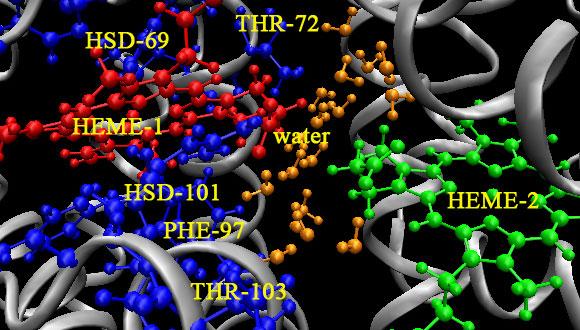Physical Chemistry Seminar: Heavy metal cycling in the subsurface
Dr. Maya Engel, Faculty of Agriculture, Food and Environment, The Hebrew University
Abstract:
Subsurface systems, such as alluvial aquifers and soils, store and govern the quality of groundwater by sustaining a unique balance of biogeochemical and hydrological processes. The complex characteristics of subsurface systems are demonstrated in both spatial and compositional sediment heterogeneities that ultimately control the rate and extent of elemental cycling. Different redox environments commonly form within the subsurface and may largely influence these cycles. Heavy metals, occurring naturally (geogenic) or as anthropogenic contaminants, are particularly sensitive to varying redox conditions, even if they are not directly redox active.
In this seminar, I will show how sediment hotspots and interfaces influence elemental cycling, contaminant attenuation, and groundwater quality. I will present examples of how an alluvial aquifer system exhibiting redox heterogeneities may influence heavy metal mobility by preferential retention in fine-grained sediment lenses embedded within the coarse aquifer sand. Using advanced techniques such as X-ray absorption and Mossbauer spectroscopies, the speciation of the metals is characterized, revealing compositional differences in heavy metal retention mechanisms between the fine-grained sediments and the sand.
Further, I will share our findings on the dynamic and unique composition of iron-rich colloids, detected in reducing zones of a floodplain subsurface. Our results demonstrate the presence of partially oxidized nanosized iron rich colloids in otherwise reducing conditions. Extensive characterization including TEM-EDX, Nano-SIMS, XAS, Mossbauer and XPS methodologies, confirmed the presence of a protective organic-silicon coating that shields the colloids from redox triggered processes. The lifecycle and composition of these colloids may have direct effects on element cycling as they may serve as vectors for the transport of nutrients and organic matter into groundwater and surface water recipients.
Lastly, I will present my future research visions, in the new BioGeoChem lab at the Department of Soil and Water Sciences of the Hebrew University of Jerusalem.
Seminar Organizer: Dr. Guy Cohen


